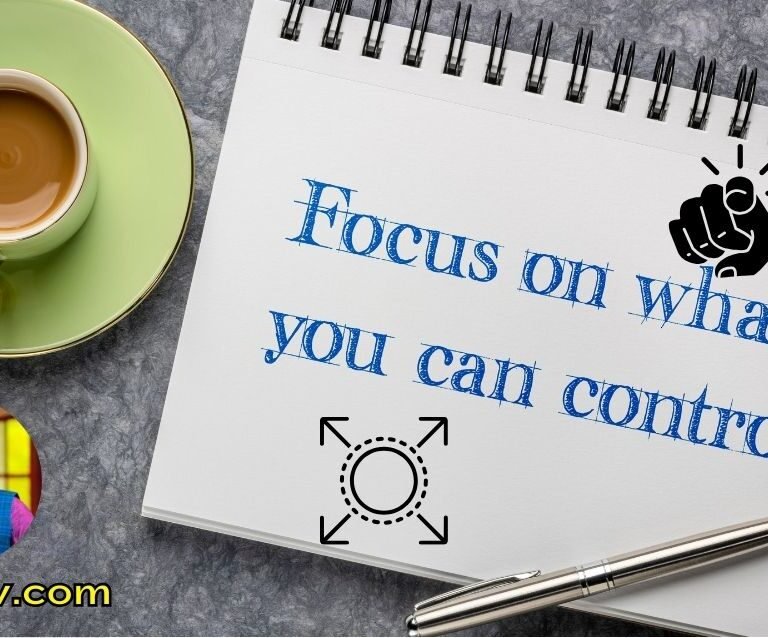The Power of Positive Thinking
The concept of positive thinking has been a cornerstone for personal growth and success for decades. The phrase “I think I can, I know I can” is not just a sequence of words but a powerful mantra rooted in a profound historical context. This saying traces its origins to the beloved children’s story, “The Little Engine That Could,” which symbolizes the triumph of perseverance and self-belief over daunting challenges. The narrative underscores a universal truth: the ability to think positively and have confidence in oneself can be transformative.
Positive thinking fosters a mindset that is geared towards optimism and resilience. When individuals believe in their abilities and maintain a positive outlook, they are more likely to persist in the face of adversity. This belief becomes a driving force that propels them toward their objectives, regardless of the obstacles. By embracing this mindset, one cultivates an inner strength that can lead to achieving remarkable goals. It is this unwavering belief in one’s potential that enables people to reach beyond their perceived limitations and realize their aspirations.
Moreover, confidence is pivotal in overcoming challenges and navigating the complexities of life. A positive mindset does not imply ignoring difficulties but rather approaching them with a sense of capability and possibility. It encourages individuals to find solutions where others see problems and to view setbacks as opportunities for growth rather than as insurmountable barriers. This perspective fosters resilience, allowing individuals to bounce back from failures and continue pursuing their dreams with renewed vigor.
Adopting a positive thinking approach can bring about lasting change in one’s life. It influences not only personal success but also contributes to overall well-being. By developing a habit of positive thinking, individuals can transform their outlook, enhance their mental health, and build a more fulfilling, purpose-driven life. This fundamental shift in perspective is the essence of unleashing one’s inner potential and achieving sustained personal and professional growth.
Understanding Self-Efficacy
Self-efficacy, a term coined by the renowned psychologist Albert Bandura, is pivotal in understanding one’s inner potential. It refers to an individual’s belief in their capability to execute specific tasks or meet challenges successfully. Essentially, self-efficacy is about how confident one feels in their abilities to achieve desired outcomes. This concept is not merely an abstract psychological idea; it has concrete implications for one’s behavior, motivation, and mental health.
The belief in one’s self-efficacy significantly influences how individuals approach goals, tasks, and challenges. For instance, a person with high self-efficacy is more likely to embrace difficult tasks as challenges to be mastered rather than threats to be avoided. This proactive attitude fosters persistence, resilience, and a positive mindset, thereby enhancing performance and increasing the likelihood of success. In educational settings, students with high self-efficacy tend to set higher goals, exhibit greater effort, and persevere longer, leading to better academic achievements.
Studies underscore the importance of self-efficacy in various aspects of life. Research has demonstrated that high self-efficacy is associated with lower levels of stress and anxiety. For example, a study published in the Journal of Applied Psychology found that individuals with high self-efficacy are more capable of dealing with workplace stress, leading to improved job performance and satisfaction. Additionally, another study revealed that self-efficacy beliefs are critical in the recovery process of individuals undergoing medical treatments, as patients with a strong sense of self-efficacy tend to adhere more closely to prescribed therapies and exhibit faster recovery rates.
Real-life stories further illustrate the power of self-efficacy. Consider the journey of renowned athletes who have triumphed over significant odds due to their unyielding belief in their abilities. Their stories are testaments to how high self-efficacy can drive extraordinary accomplishments, be it in sports, academics, or personal life. Therefore, fostering self-efficacy is not just about nurturing self-belief; it is about unlocking potential and paving the way for a more empowered and fulfilling life.
The Science Behind Visualization and Affirmations
Visualization and affirmations are powerful tools rooted in scientific principles that harness the brain’s remarkable capacity to shape our reality. Numerous studies in neuroscience and psychology have explored how these techniques can help individuals unlock their inner potential by influencing the neural pathways in the brain. One of the key concepts behind this is neuroplasticity, the brain’s ability to reorganize itself by forming new neural connections.
When we visualize a successful outcome, the brain engages the same neural networks it would if we were actually performing the task. This phenomenon, known as mental rehearsal, has been shown in studies using neuroimaging techniques. Athletes, for instance, often use visualization to enhance their performance. The process creates a mental blueprint that the brain can follow during real-life execution, effectively priming the individual for success. By repeatedly visualizing our goals, we can condition our brain to recognize the pathways to achieving them, thus reinforcing the belief that “I know I can.”
Affirmations work on a similar principle by altering the brain’s wiring through repetition. When we consistently repeat positive affirmations, we flood our brain with constructive, self-empowering thoughts. This can lead to a decrease in the production of stress hormones such as cortisol, thereby reducing anxiety. Over time, these positive statements can replace negative thought patterns, enhancing our self-esteem and resilience. Research has shown that self-affirmation activates the brain’s reward centers, which are also involved in important cognitive functions such as problem-solving and decision-making.
Moreover, a study published in the journal “Social Cognitive and Affective Neuroscience” found that affirmations help to protect against the brain’s response to threats, enhancing our capacity to manage stress and challenge effectively. By consistently employing visualization and affirmations, we are not only bolstering our mental and emotional well-being but also fortifying our belief in our abilities, thereby unlocking our full potential.
Building a Growth Mindset
Carol Dweck’s seminal work on the growth mindset has fundamentally reshaped our understanding of how mindset influences personal and professional development. According to Dweck, individuals typically operate within one of two cognitive frameworks: the fixed mindset or the growth mindset. Those with a fixed mindset believe that their abilities and intelligence are static, predetermined traits that they cannot change. Consequently, they may avoid challenges, give up easily, and view effort as fruitless.
In contrast, a growth mindset is characterized by the belief that abilities and intelligence can be developed through dedication and hard work. This mindset encourages resilience, a love for learning, and a resilience that is essential for high achievement. Individuals with a growth mindset are more likely to perceive challenges as opportunities to enhance their skills and knowledge. This not only makes them more apt to persist in the face of difficulties but also enables them to embrace lifelong learning.
Shifting from a fixed to a growth mindset involves several strategic actions:
Strategies for Cultivating a Growth Mindset
First, reframing challenges as opportunities is crucial. Instead of shying away from difficult tasks, we should view them as opportunities to learn and grow. Embracing the idea that failure is not a reflection of our inherent abilities but a stepping stone to improvement is vital. Moreover, it is beneficial to celebrate effort and progress rather than solely focusing on the end result.
Second, cultivating a love for learning can make a significant difference. Engaging in activities that push us out of our comfort zones, seeking feedback, and remaining curious can contribute to developing a growth mindset. Celebrating small wins and recognizing progress can further reinforce this shift.
Lastly, surrounding oneself with like-minded individuals can foster a supportive environment conducive to growth. Collaboration and mutual encouragement can enhance the pursuit of personal development.
Transitioning from a fixed mindset to a growth mindset is a continuous journey. By proactively adopting strategies to shift our perspective, we can unleash our inner potential, fostering an environment of continuous improvement and lifelong success.
Overcoming Self-Doubt and Imposter Syndrome
Self-doubt and imposter syndrome are common mental barriers that many individuals face, regardless of their level of success or expertise. These feelings often stem from a deep-seated fear of inadequacy and a concern that one’s achievements are not truly deserved. Understanding why these emotions arise is the first step in combating them.
Self-doubt typically emerges from past experiences of failure or criticism, magnified by unrealistic standards that we set for ourselves. Imposter syndrome, on the other hand, is characterized by the belief that one’s success is a result of luck rather than skill, leading to a constant fear of being exposed as a ‘fraud’. These mental barriers can severely hinder personal and professional growth if left unaddressed.
One effective strategy to overcome self-doubt and imposter syndrome is to actively challenge negative thoughts. This can be achieved by keeping a journal to document moments of doubt and then rationalizing these thoughts with factual evidence of your abilities and achievements. For instance, if you catch yourself thinking, “I’m not good enough,” counteract this by listing instances where you have indeed succeeded and received positive feedback.
Seeking feedback and mentorship from trusted individuals can also play a critical role in overcoming these mental barriers. Constructive feedback can provide an external perspective, often highlighting strengths that you may have overlooked. Moreover, mentors can offer valuable advice and reassurance, helping you navigate through periods of self-doubt.
Gradually building confidence through small, consistent achievements is another key tactic. Setting attainable goals and celebrating each milestone, no matter how minor, can incrementally build a robust sense of self-assurance. Over time, these small victories can accumulate, creating a strong foundation of confidence that can effectively counteract feelings of inadequacy.
By recognizing these mental barriers, challenging negative thoughts, seeking support, and building confidence gradually, one can effectively overcome self-doubt and imposter syndrome, laying the groundwork for unleashing their inner potential.
Learning from Failure: Resilience and Perseverance
Failure is often perceived as the antithesis of success, but in reality, it is an essential component of any meaningful journey towards achieving one’s goals. The importance of resilience and perseverance cannot be overstated when dealing with setbacks. Embracing failure as a learning opportunity rather than a definitive end can significantly shift one’s trajectory towards greater accomplishments.
Consider the stories of renowned personalities such as Thomas Edison and J.K. Rowling. Edison, who famously stated, “I have not failed. I’ve just found 10,000 ways that won’t work,” demonstrates the value of resilience and persistence. His steadfast determination eventually led to the invention of the electric light bulb, a revolutionary milestone. Similarly, J.K. Rowling faced numerous rejections before the Harry Potter series saw the light of day, teaching us the power of perseverance in the face of repeated setbacks.
The journey to success is seldom smooth or straightforward. Encountering obstacles offers a chance to refine skills, reconsider strategies, and grow stronger. It is through these challenging experiences that one can build a resilient mindset, critical for navigating the inevitable ups and downs that come with ambitious pursuits.
To foster resilience, it is vital to view setbacks through a constructive lens. Recognize and acknowledge the effort put forth, even if the outcome was different from what was anticipated. Additionally, setting realistic goals and breaking them into manageable tasks can help in maintaining focus and momentum. Another crucial aspect is maintaining a positive attitude, as it can significantly influence how one reacts to and recovers from failures.
Ultimately, resilience and perseverance are cultivated through practice and patience. By turning failures into stepping stones, we pave the way for eventual triumphs. Embracing this mindset not only enhances personal growth but also lays a solid foundation for achieving one’s inner potential.
Practicing Self-Compassion and Mindfulness
In the pursuit of unleashing one’s inner potential, practicing self-compassion and mindfulness emerges as a cornerstone. Self-compassion is about extending kindness to oneself, particularly in times of failure or distress, instead of resorting to harsh self-criticism. It encompasses the understanding that experiencing setbacks and hardships is a shared human experience rather than a solitary downfall.
Mindfulness, on the other hand, involves staying present and fully engaging with the present moment, without being overwhelmed by the past or future. This practice helps in calming the mind, reducing stress, and fostering a balanced outlook on life. Together, self-compassion and mindfulness form a powerful duo that can aid significantly in managing stress and overcoming setbacks more resiliently.
One effective technique for practicing self-compassion involves the “self-compassion break.” During moments of challenge, individuals can pause, recognize their suffering, and speak to themselves with a comforting and supportive tone, just as they would to a friend. For mindfulness, incorporating simple practices such as mindful breathing or a brief body scan can be transformative. These exercises require only a few minutes and can be performed almost anywhere, providing an accessible entry point into mindfulness.
Beyond immediate stress relief, the long-term benefits of integrating self-compassion and mindfulness into daily routines are profound. Studies have shown that individuals who regularly practice self-compassion exhibit higher levels of emotional resilience, better mental health, and increased overall well-being. Mindfulness has similarly been linked to improvements in concentration, emotional regulation, and a more composed handling of challenges. By embedding these practices into everyday life, one sets a foundation for sustained personal growth and a more positive, empowered mindset.
Actionable Steps to Cultivate Confidence and Achieve Goals
Unleashing your inner potential begins with a series of actionable steps designed to transform your mindset from “I think I can” to “I know I can.” One of the foundational actions is setting SMART goals—goals that are Specific, Measurable, Achievable, Relevant, and Time-bound. By breaking down your objectives into these criteria, each step becomes more manageable and attainable, allowing you to track your progress systematically.
Creating a vision board can also be an instrumental tool in helping you visualize your goals. This physical or digital representation of your ambitions serves as a daily reminder of what you strive to achieve. Populate your vision board with images, quotes, and milestones that resonate with you, keeping it in a place where you can see it regularly.
Developing a daily routine that includes affirmations and visualizations is another crucial step. Affirmations are positive statements that reinforce your belief in your abilities, while visualization involves mentally rehearsing your future success. Dedicate a few minutes each morning to repeat affirmations and visualize achieving your goals. This practice can instill a sense of confidence and purpose that guides your actions throughout the day.
Tracking your progress is essential for maintaining motivation and making adjustments as needed. Use a journal, app, or another tracking tool to record your daily achievements, setbacks, and lessons learned. Regular reflection on your progress can provide valuable insights and keep you focused on your path.
Additionally, finding a support system can offer emotional and practical assistance. Surround yourself with individuals who encourage and challenge you, such as mentors, friends, or like-minded peers. Engaging in communities, whether in person or online, can provide inspiration and also accountability.
Maintaining long-term motivation requires persistence and adaptability. Celebrate small victories along the way and remain flexible in your approach. If a particular strategy or goal no longer aligns with your vision, do not hesitate to adjust your plans. Remember, the process of growth is ongoing, and every step forward, no matter how small, contributes to your ultimate success.









